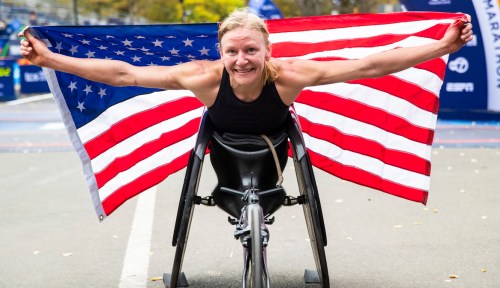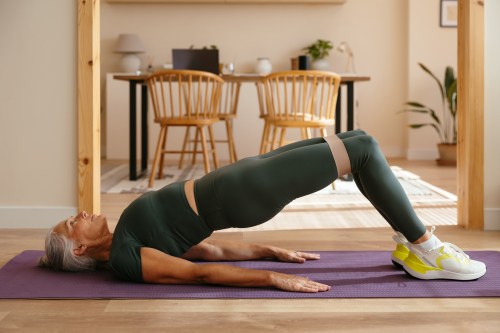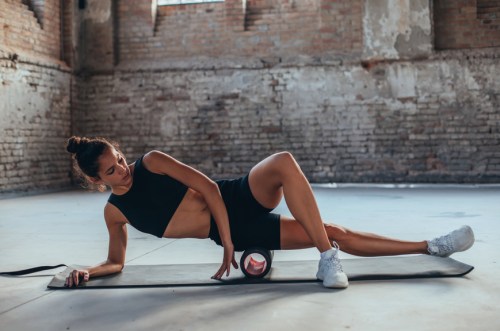Our editors independently select these products. Making a purchase through our links may earn Well+Good a commission
‘I’m a Paralympian and Dietitian, and Here’s What I Eat Before a Marathon’
Eat like a pro: Learn what the marathon fueling plan of registered dietitian and paralympian Susannah Scaroni looks like.

When Paralympian Susannah Scaroni went to grad school to become a registered dietitian, her daily meals began to change. In particular, as she read more about the research behind endurance sports nutrition, the wheelchair athlete started to eat a lot more carbs. And she quickly noticed a difference in her performance: “I really attribute a lot of the changes that I’ve experienced since 2017 to working toward a higher carb diet and training my gut to even be better and better at a higher carb diet,” she says.
Experts in This Article
Paralympic wheelchair athlete and registered dietitian
Those “changes” include major victories: Gold in the 5000 meters at the 2020 Tokyo Paraympics, and first-place finishes at the Chicago, New York City, Boston, and Grandma’s marathons.
Ahead of lining up once again at the TCS New York City Marathon, Scaroni—now an RD—gave Well+Good the inside scoop on exactly what her marathon fueling plan looks like.
The day before
Because wheelchair racing involves less impact than running, Scaroni says the training involves high intensity and high volume the majority of the time, which means she pretty much always follows a high-carb diet. So she only really starts to zero in on race-specific nutrition the day before.
That starts with sipping on carb-rich drinks: She aims for 80 ounces of fluid, including 32 ounces coming from a sports drink like Gatorade.
Although her pre-race dinner is typically provided by race organizers, she likes to follow a bit of a formula. For carbs, she’ll have some rice, potatoes, or pasta. She’ll also include a lean protein like chicken or fish. “And I don’t avoid too many vegetables, but I’m not having a dry kale salad, for example,” she says. “I’m trying to have a little less fiber, but some cooked vegetables are always nice.”
In order to make sure she’s not up all night going to the bathroom, she’ll drink most of her final fluids for the day at dinner so that she’s also taking in some electrolytes, like sodium, to help her hold onto them. Then she’ll just have a small glass of water when she’s brushing her teeth.
“Sleep is just as important as nutrition,” she says. “And not having to use the restroom more times a night is a big part of that.”
The morning of the race
Just like any other morning, Scaroni starts every race day with a big glass of water to rehydrate after sleeping.
She usually eats breakfast a couple hours before training, but before a race—particularly one with tricky logistics like the New York City Marathon, which begins on Staten Island—there may be a few hours between breakfast and the start. So she’ll have a bigger meal that includes complex carbs and protein, like oatmeal and yogurt or peanut butter, maybe a Clif bar and Gatorade because she knows she has time to digest it—and she doesn’t want to end up hungry during the race. Then she’ll bring a Gatorade, Powerade, or Skratch Labs carbohydrate hydration mix with her on the bus and in the tent just before the start.
Coffee is also a must. “What I love, if I have the opportunity, is to bring my own AeroPress. I usually use about 16 grams of beans and grind those up,” she says. “Or, if I don’t have that option and there’s a coffee shop, I like to get a red eye, which is a cup of coffee with a shot of espresso in it.”
On the course
Scaroni did her master’s thesis on fueling considerations for the specific needs of para athletes. Some have impaired GI functioning due to a spinal cord injury, and even just the position that athletes take inside their sports wheelchairs can interfere with the gastric system. Also, she points out: “Our hands are in gloves, so just the act of eating needs to be done a little bit more thoughtfully.”
Scaroni’s go-to strategy is filling up a CamelBak with 60 grams of carbs from her Skratch Labs hydration mix, then drinking it through a straw (mostly on downhills when she doesn’t have to use her hands to push).
Her advice to other marathoners
There’s a classic saying in running: Don’t try anything new on race day. And that applies to your marathon fueling plan, too. Scaroni suggests training with exactly what you plan to eat during the race, down to the exact brands and flavors. “GI issues during running are so prevalent, and I think really kind of trying to nail down what your body can tolerate while you’re running is a big thing to completing the marathon to the best of your ability,” she says.
Along those same lines, she suggests also practicing that early breakfast, or multiple small meals, like you’ll have on race day. And about all that free Dunkin Donuts coffee in the start village: Only partake if you typically drink coffee right before a run. “If [you’ve] never had it before,” warns Scaroni, “it’s not necessarily the best day of the year to try it out.”
Sign Up for Our Daily Newsletter
Get all the latest in wellness, trends, food, fitness, beauty, and more delivered right to your inbox.
Got it, you've been added to our email list.










